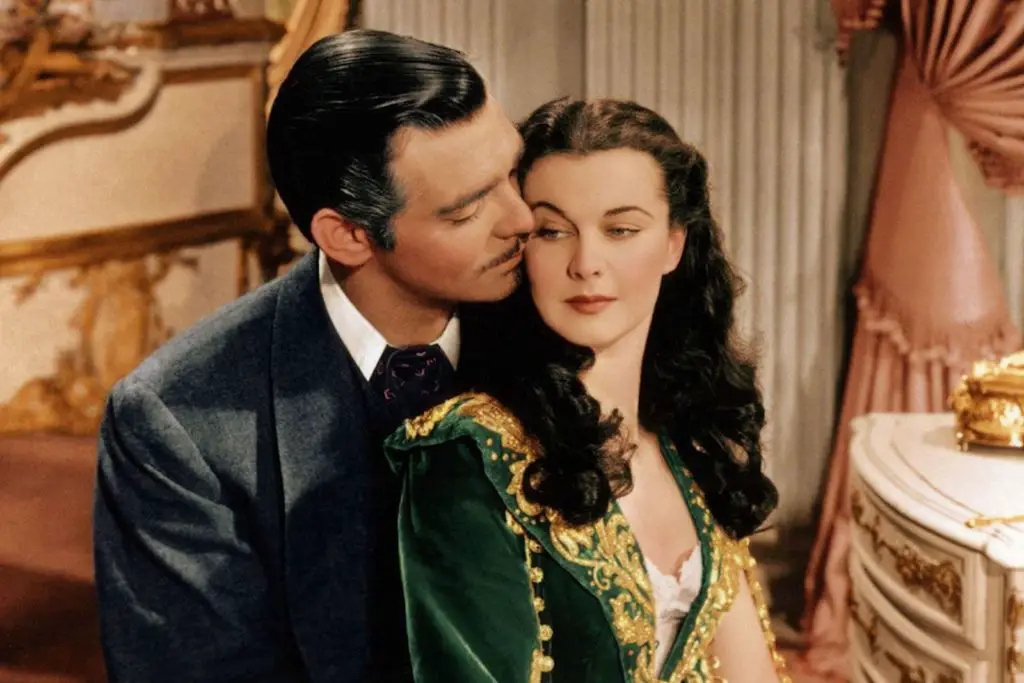
In Hell Fire’s official press release, producer Frank Garfi summarized the film thusly: “It’s about four prostitutes who accidentally kidnap the Antichrist.” If you boil the entire story down to a sentence, that’s a good way to describe the film’s first act. But it’s not a perfect description, because Hell Fire is the latest collaboration between Garfi and writer/director Marc Fratto, both of whom have proven themselves to be filmmakers who emphasize story and character with their previous productions, Strange Things Happen at Sundown and Zombies Anonymous. In truth, Garfi’s distillation is barely a jumping-off point. It’s the plot, not the story.
The film opens with the easy-going Anti-Christ (the wonderful J. Scott Green) strolling down the street, his image wavy from the heat coming off the pavement, while he narrates the opening My Name is Earl-style. He tells us who he is and who the sex-working quartet are in succinct but unflinching detail. Each woman has a harrowing back-story that led them to his company—Cinnamon (Williams) yearned to be an actress but wound up a drug addicted porn star; Shenice (Carter), the disowned daughter of a Baptist minister, suffered a string of bad relationships and gave herself a bathtub abortion. At the heart of the story is Justine (aka “Fyre”) (Marshall), who rescued herself and her sister Casey from a lifetime of abuse and incest, only to end up with them both working for drug dealer and pimp, Dark Gable (Davis). “And then there’s Rosetta,” (Beretta) says A.C. “I can’t get a read on her, so I guess she must not be that important.” Neither, he says, is the pregnant woman he’s about to stab on the street.
Jump to a point in the future and the quartet have hatched a heist. They’ve heard about a deal going down between Gable and some “big shot, hippie-looking mother-f****r.” Their plan is, basically, to bust in, shoot everyone and take the loot. The only problems: Cinnamon’s taken a round to the gut and there is no money, nothing really to speak of. Maybe a few thousand, which doesn’t suit Rosetta at all. “A couple of thousand? I didn’t come here to get n***a-rich! I came here to cash in my Mother-f*****g 401k!” After executing everyone in the room, they haul A.C. to his feet and take him to a “place” Rosetta knows about. Nice and quiet where they can torture a guy who claims to be the Anti-Christ. And he, being the actual son of Satan, can torture them back.
Hell Fire is an entertaining ride from the beginning, giving us likable—if extremely morally-challenged—characters trapped in a situation that keeps getting worse. The four women aren’t friends, merely co-workers. They all have their own reasons for getting involved and none of them intersect. Yet they express moments of compassion towards each other, as well as kinship. Even the bloodthirsty Rosetta, keeping a secret she’s not even aware of, knows her survival lies within the group dynamic. Her manipulation of the situations display an intimate knowledge of her compatriots, whether she likes them or not. She’s not only the boss but the mother-figure in this mob. Justine, who watched Gable beat her sister to death over a misunderstanding, is the wild child and as far as she’s concerned, the vendetta is over. But her need for sorority keeps her with Rosetta and the others.
And then there’s our buddy the Anti-Christ. He’s the kind of soul-sucking guy you can have a beer with. Except for his plan to destroy the world, remove the pesky souls from all of mankind and “party like rock stars like we were all supposed to!” His powers are only just starting to evolve. It isn’t too long before Rosetta starts to take him seriously.
As with their previous vampire and zombie offerings, Fratto and Garfi have taken a well-worn exploitation trope, in this case The Omen and all Omen-like materials, and infuse it with black humor, extreme Evil Dead-splatstick violence—as well as some imagery both truthfully horrific and extremely painful-looking—but also and more importantly, a sense of humanity. It also dares to challenge your sense of good and evil without being precious or cynical about it. You want the Anti-Christ to fail because, well, because he’s The Anti-Christ. But A.C. is actually kind of fun to have around. Except for Rosetta, none of the women thought of prostitution as a career choice, and the glimpses we’re given of their back-stories cement them as, if not sympathetic characters, then at the very least tragic.
Fratto’s strength as a screenwriter and director is creating whole characters then giving his actors plenty of room to run around in them. For a reasonably-low-budgeted independent, there isn’t a single performance that can be singled out as inferior to anyone else. Even with the demon-ridden corpses, they all retain their “real-ness”.
As far as the rest of the stuff I’m honor-bound as a critic to focus on, the lighting, camerawork, sound, music, except for one sequence where the primary reds and greens are a little too carefully delineated for my taste—in a few shots, Rosetta’s face is literally divided in half by a green fill that gives her a “Two-Face” look that rather undercut the important scene for me (and it features great verbal sparring between Green and Selene Beretta)—I have nothing to really kibbutz about.
It’s a rich and honest movie that isn’t afraid to be those things. The marvelous one-liners (“That’s for kicking me in the vag! You know I need that for work!”) bandied about aren’t there to shield anyone from deeper emotion, no matter how firmly the filmmakers’ tongues are imbedded in their cheeks. At the risk of being cute, I’d happily put up Hell Fire against Hollywood’s recent horror offerings, but that wouldn’t be a fair fight. Hollywood hasn’t put out that much honest horror in some time.


